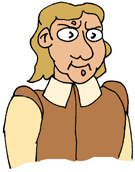The Industrial Industrial Revolution involved a drastic change in manufacturing: from hand methods to machine methods.
This change, which began in England about 1750 and later spread to other countries, is called a “revolution” because it brought vast changes in the way people work and live. It created an industrialized society—one in which large-scale mechanized manufacturing replaced farming as the main source of jobs. Instead of growing their own food and making at home the products they use, a great many people in an industrialized society work for wages and buy their food and other necessities. They live in towns and cities rather than in the country.
New inventions in farming, cloth-making (textiles industry) and transportation (the steam engine) made the greatest impact.
The Industrial Revolution brought severe consequences to society. Factory owners, needing cheap, unskilled labor, profited greatly by using children and women to run the machines. By the age of 6, many children were already working 14 hours a day in factories! These kids had no free time to do anything else and earned low wages. Some got sick and died because of the toxic fumes, while others were severely injured and sometimes killed working at the dangerous machines in factories. Obviously, the Industrial Revolution had both good and bad sides.
(Read more at librarythinkquest.)
Other useful and interesting sites:
- Inventions Timeline
- Teachertube video: Inventions
- BBC for Kids (animated, interactive info)
- Biographies of Important People in the Industrial Revolution
- Inventors
- Children at Work
- Timeline of Inventions
- Industrial Revolution Summary notes
- Factory Scene from Modern Times, a Charlie Chaplin movie
- I Love Lucy chocolate factory scene
- The Atlantic article:
Forget Edison: This is How History's Greatest Inventions Really Happened











